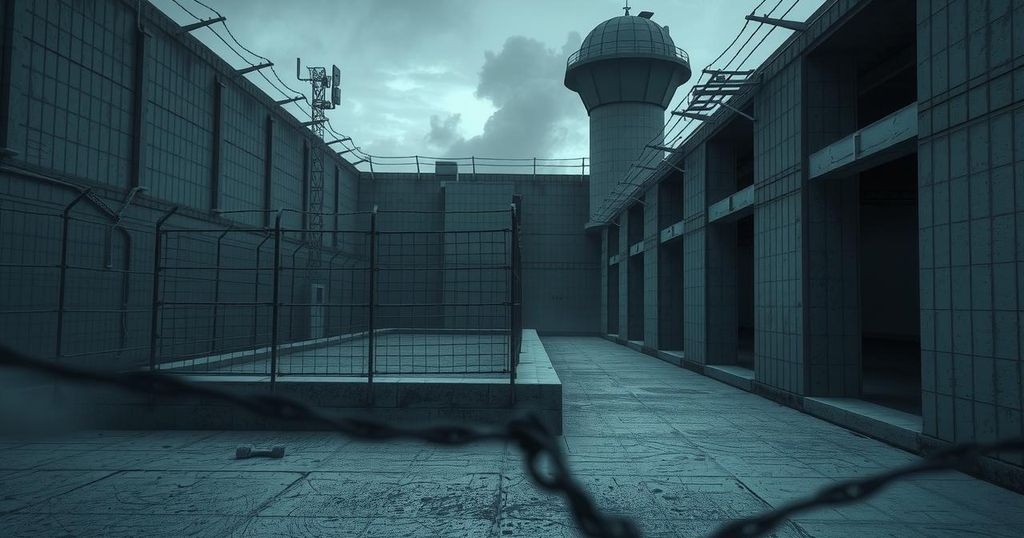Controversy Surrounding Deported Suspected MS-13 Member Kilmar Abrego Garcia

KIlmar Abrego Garcia, an illegal immigrant with alleged MS-13 ties, was transferred from a notorious El Salvadoran prison before U.S. Senator Chris Van Hollen’s visit to advocate for him. Van Hollen highlighted constitutional rights in his criticism of President Trump, who defended deportation actions. Garcia’s case raises significant debate over immigration policy and public safety, drawing attention to broader immigration law discussions and criminality.
KIlmar Abrego Garcia, a deported illegal immigrant with alleged affiliations to the MS-13 gang, was transferred from El Salvador’s Centro de Confinamiento del Terrorismo (CECOT) prior to U.S. Senator Chris Van Hollen’s visit to the country. Van Hollen confirmed that Garcia had been moved to the Centro Industrial detention facility in Santa Ana about eight days before their meeting. Here, Garcia spoke of his accommodations within the detention center, expressing that he was in a personal room rather than in a conventional cell.
During his visit, Senator Van Hollen criticized President Donald Trump, emphasizing that denying constitutional rights to individuals jeopardizes these rights for all. He referenced a federal judge’s ruling which stated there was “no evidence linking Abrego Garcia to MS-13 or to any terrorist activity.” In contrast, Trump accused Democrats of misrepresenting Garcia’s character as innocuous.
Democratic lawmakers, including Van Hollen, have faced backlash regarding Garcia’s deportation, which many claim was unjust. Trump criticized the Democrats for advocating on behalf of someone he labelled a member of a violent gang, asserting that they undermine national safety in their attempts to support individuals like Abrego Garcia.
The White House has also condemned Van Hollen’s trip, juxtaposing images of Trump with the mother of a murder victim against Van Hollen’s meeting with Garcia. The victim’s mother expressed her frustration over the resources allocated to support Abrego Garcia instead of acknowledging the tragedy her family has endured.
Garcia has been implicated in serious criminal activity, including potential human trafficking, as detailed in a Homeland Security Investigations report. The report cited an incident in which Garcia, alongside several individuals in his vehicle, was suspected of human trafficking during a traffic stop.
Further investigations identified Garcia as a known MS-13 member, corroborating a history of violence, including domestic abuse towards his wife. The Supreme Court recently mandated the Trump administration to facilitate Garcia’s return, affirming the need for his case to be handled appropriately. Despite this ruling, the administration has suggested that the ultimate decision rests with El Salvador regarding his return.
Finally, officials from the Department of Homeland Security reaffirmed their stance, stating Garcia belongs in El Salvador. They cautioned against romanticizing his narrative, drawing comparisons to notorious criminals to illustrate that familial connections do not equate to innocence in the context of criminal behavior.
In summary, the case of KIlmar Abrego Garcia has ignited significant controversy regarding immigration policy and criminal justice. His deportation and subsequent designation as an alleged gang member raise questions about the balance between law enforcement and the protection of individual rights. While some lawmakers advocate for Garcia’s return to the United States, the decision ultimately remains intertwined with broader national discussions about safety and immigration enforcement. The matter illustrates the complexity of addressing immigration cases that involve serious criminal allegations alongside individual human rights concerns.
Original Source: www.foxnews.com








